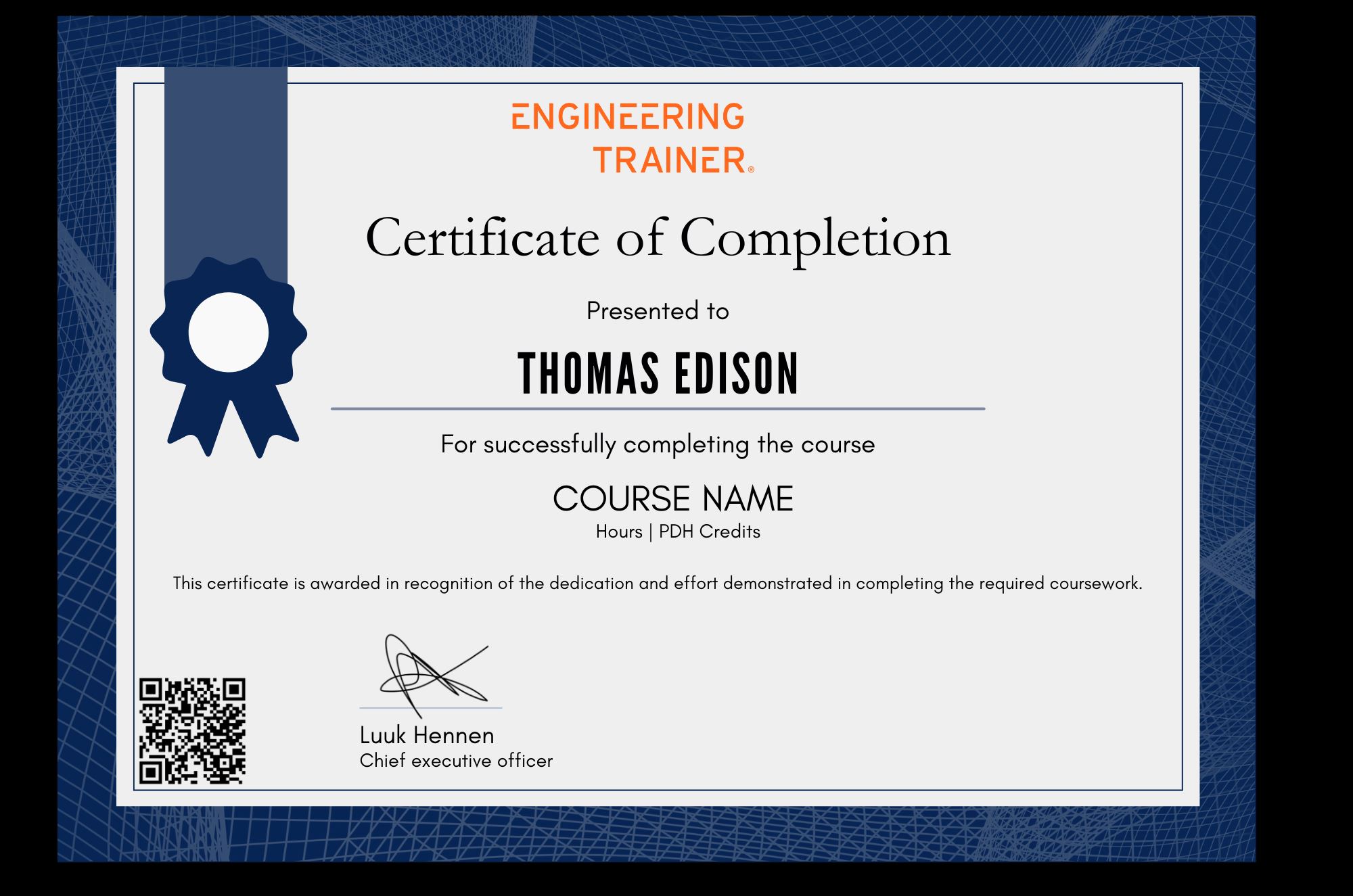Fatigue Design Practices
Why take this course?
This self-paced course offers a practical guide to designing fatigue-resistant components, emphasizing industry best practices and common design pitfalls. Through video lectures and quizzes, you’ll explore effective strategies and real-world examples to enhance durability. Upon completion, you’ll receive a certificate with PDH credits, supporting your ability to create safer, more reliable structural designs.
What you'll learn
After this course, you...
• have seen in depth the steps in the fatigue mechanism, from crack initiation and crack growth, to fatigue failure.
• are familiar with an S-N curve, and the impact of different factors such as loading type, component size and material strength on the fatigue life.
• understand how stress concentrations factors can be calculated and used to determine the effect of notches and other geometric features on the fatigue life.
• can calculate the fatigue life for a component under different loading conditions and the impact of safety factors.
• will have seen the underlying experimental tests and theory which forms the basis of the fatigue design S-N curves and stress concentration factors.
About the course
Designing against fatigue is a crucial aspect of ensuring the safety and reliability of structural components subject to cyclic loading. This course provides a practical guide to fatigue-resistant design, focusing on industry best practices, common pitfalls, and actionable insights to enhance component durability.
Participants will learn about effective design strategies to mitigate fatigue and explore real-world examples of what to do—and what to avoid—when designing for fatigue.
Key topics include:
Best practices for designing against fatigue
Common design errors and how to avoid them
Practical examples of successful and unsuccessful fatigue design
This course is ideal for engineers looking to improve their design approach and create safer, more durable structures.
Who should attend this course
Those involved in structural design or reviewing designs:• Stress engineers
• Structural designers
• Test engineers
• Lead engineers
• Engineering managers
Prerequisites
An understanding of loads and stressesA basic understanding of material behaviour
Program & Details
-
Fatigue Designing Practices
1. Introduction to fatigue life analysis
2. Fatigue predictions using nominal stresses
3. Examples
4. Safety factors
Certification


Why choose EngineeringTrainer
-
Unlimited Team-wide Access
-
Advance Technical Competences
-
Courses by Industry Authorities
Since using EngineeringTrainer our internal mentorship has a much more matured character.
Logan Chapman - COO at Chapman Consulting Inc.
Request a Quote
Train Smarter. Grow Faster.
Build real-world skills that help you make better engineering decisions, reduce errors, and stand out in your field.






